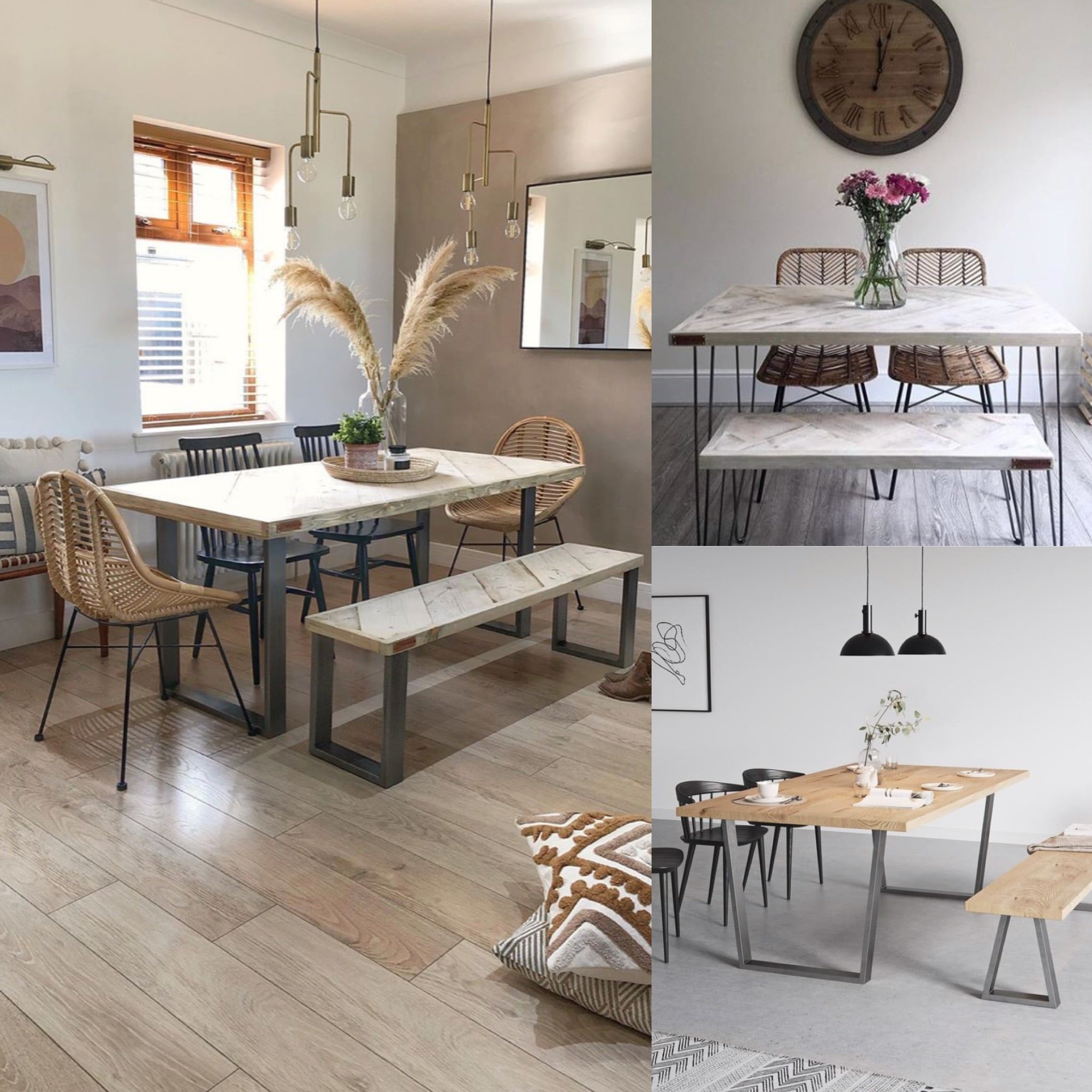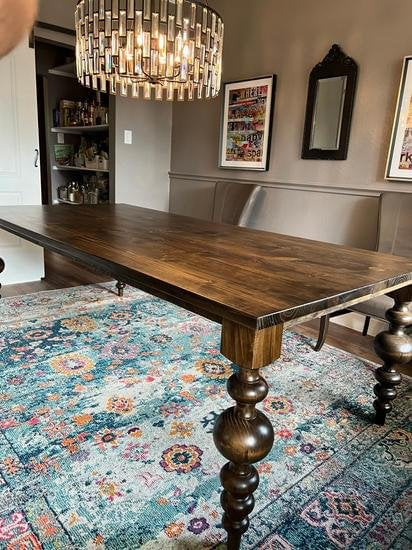The Best Materials for Durable and Elegant Dining Room Table Legs
The Best Materials for Durable and Elegant Dining Room Table Legs
Blog Article
Exactly How to Pick the Perfect Dining Room Table Legs for Your Home Décor
Choosing the optimal dining room table legs is a nuanced procedure that calls for mindful consideration of numerous aspects, including your room constraints, visual choices, and functional requirements. The interplay in between designs, dimensions, and materials can dramatically influence the atmosphere of your eating location, making it necessary to approach this decision systematically. As you ponder the myriad alternatives offered, it ends up being clear that the appropriate selection prolongs beyond plain appearance; it can enhance your total dining experience. What elements should you focus on to ensure your selection complements your home's special personality?
Assess Your Dining Space
Assessing your dining area is crucial for choosing the right table legs that enhance both appearances and performance. Begin by gauging the dimensions of your eating area, consisting of ceiling elevation, floor area, and closeness to other furnishings. This information will certainly aid determine the appropriate dimension and height of your table, which directly affects the selection of table legs.
Following, consider the design and format of your dining space. An open-concept design might profit from table legs that provide aesthetic lightness, such as slim metal or acrylic choices. On the other hand, a much more typical setup may ask for sturdy wood legs that provide a sense of permanence.
Examine the existing color combination and materials in your dining area. Integrating the table legs with these aspects produces a cohesive appearance that boosts the general style.
Inevitably, an extensive assessment of your eating area will lead you in making an educated decision, making certain that your table legs not only improve the aesthetic charm yet also offer practical purposes.
Consider Your Design Preferences
When picking dining space table legs, it is necessary to assess your individual design preferences, as they dramatically affect the general visual of your eating area. Your selection of table legs can either complement or comparison with existing decor, making it vital to align them with your favored interior decoration theme.
If your home leans in the direction of a contemporary visual, think about streamlined steel or minimalist wood legs that provide a clean, clean appearance. For a more conventional strategy, ornate wooden legs with intricate carvings can include a touch of elegance and elegance. Industrial styles take advantage of robust, resources such as recovered wood and metal combinations, reflecting a rugged appeal.
In addition, farmhouse and rustic designs commonly favor sturdy, chunky legs that stimulate a sense of heat and comfort. Conversely, if your decor is eclectic, you might choose non-traditional forms or a mix of products to develop visual passion.

Evaluate Material Options
The option of material for eating room table legs plays a crucial duty in both durability and aesthetic allure. Common products consist of wood, metal, and composite choices, each offering distinctive attributes that can affect the overall appearance and long life of your table.
Timber is a traditional option, known for its heat and convenience. Hardwoods like oak and walnut offer extraordinary stamina and can be completed in various discolorations to match any decoration. Nevertheless, softwoods like ache are more susceptible to scratches and damages, making them much less suitable for high-traffic locations.
Steel legs, typically crafted from steel or light weight aluminum, exhibit modernity and industrial charm. They are very sturdy and immune to wear, making them ideal for households with kids or constant events (dining room table legs). In addition, metal can be ended up in numerous shades, enhancing the personalization opportunities
Composite products, such as MDF or laminate, deal price and varied styles. While usually less durable than solid timber or metal, they can still supply an elegant appearance and are typically easy to preserve.
Eventually, the product you pick ought to line up with your way of life, visual preferences, and the level of use your table will experience.
Determine Elevation and Size
Selecting the proper height and size for your dining-room table is important for both performance and comfort. The common height for eating tables commonly ranges from 28 to 30 inches, allowing enough legroom for many people when seated. It is vital to consider the dimensions of your eating area and the kinds of chairs you prepare to make use of.

Furthermore, consider the proportions of your eating room. A bigger table in a large area can produce a grand atmosphere, while a smaller sized table works well in more intimate setups. Inevitably, the ideal elevation and size will certainly harmonize with your total decoration and improve the eating experience for you and your visitors.
Explore Personalization Opportunities

In addition, the style of the legs can be tailored to fit different designs, such as rustic, modern-day, or commercial. Conical legs can stimulate a mid-century modern-day feeling, while beefy, block-style legs might reverberate with conventional or farmhouse decoration.
Home owners can likewise discover shade finishes, from all-natural timber discolorations to paint, enabling them to match or contrast with the tabletop and surrounding style.
Moreover, leg height can be adapted you can find out more to accommodate specific seating arrangements or individual preferences, improving both convenience and capability.
Finally, one-of-a-kind embellishments, such as makings or ornamental brackets, can better customize the table legs, making the dining experience not just a statement however a meal piece in the home. By thinking about these personalization options, homeowners can create a dining-room table that genuinely shows their originality.
Verdict
Picking the suitable dining-room table legs calls for careful consideration of numerous elements, including the measurements of the eating area, design choices, material longevity, and preferred height. Personalization options further boost the capability to accomplish a natural aesthetic that enhances the overall design. By methodically evaluating these elements, home owners can make certain that the picked table legs look at this web-site not just satisfy useful demands however additionally add positively to the dining experience and setting of the home.
Choosing the excellent eating area table legs is a nuanced process that requires cautious consideration of various elements, including your space restraints, visual preferences, and sensible needs.Examining your dining room is vital for choosing the right table legs that match both aesthetic appeals and functionality.When identifying size, determine the area where the table will be placed to ensure it fits easily, allowing for at least 36 inches of clearance around the table for easy movement. A larger table in a sizable location can produce a grand atmosphere, while a smaller table works well in more intimate settings.Selecting the perfect eating room table legs calls for cautious consideration of various elements, consisting of the measurements of the dining room, design choices, material resilience, and desired height.
Report this page